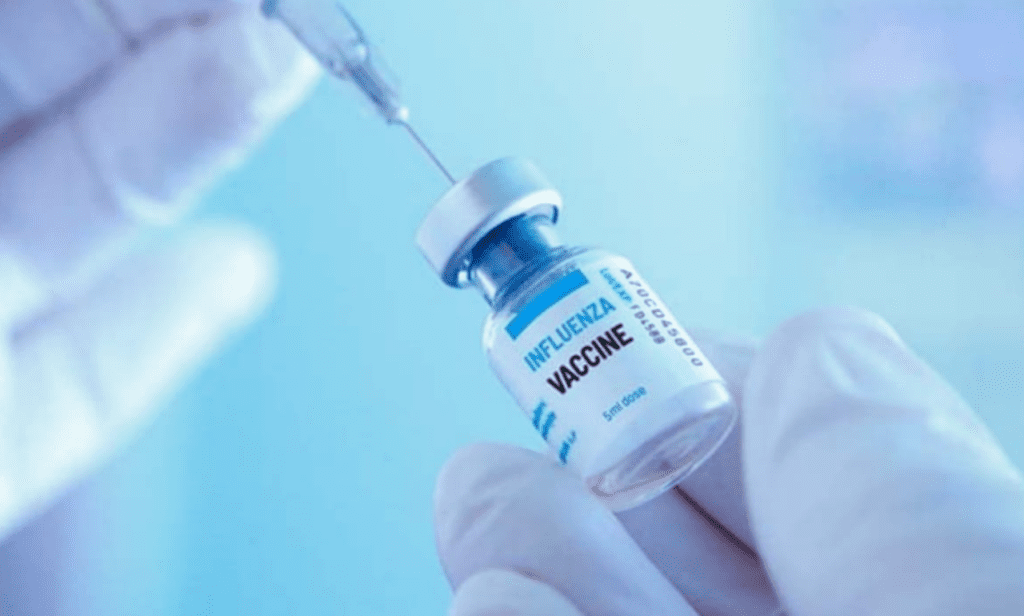
The United States has officially discontinued the use of influenza vaccines containing thimerosal, a mercury-based preservative, marking a significant policy shift announced by Health Secretary Robert F. Kennedy Jr. This decision, effective immediately for the 2025–2026 flu season, eliminates thimerosal from all federally distributed flu shots, including multi-dose vials previously common in pharmacies and clinics. Kennedy emphasized the move aligns with “a precautionary approach to vaccine safety,” though federal health agencies reiterate decades of studies show thimerosal poses no credible risk to human health. The action responds to persistent public unease about mercury in medical products—despite scientific consensus—and accelerates a two-decade trend toward preservative-free alternatives.
Thimerosal, used since the 1930s, prevents bacterial contamination in multi-dose vaccine vials. It contains ethylmercury, a compound distinct from methylmercury (found in fish), which the body excretes rapidly. A single multi-dose vial serves 10 patients, reducing costs by up to 35% versus single-dose units. Yet only 15% of U.S. flu vaccines still contained thimerosal pre-ban, down from 80% in 2001, reflecting phased reductions for child and maternal vaccines. The World Health Organization still recommends thimerosal for low-resource settings due to cost and storage efficiency, highlighting a global equity gap.
Kennedy’s directive stems partly from historical controversy. In 1999, a now-retracted study falsely linked thimerosal to autism, igniting widespread alarm. Though the CDC, NIH, and WHO repeatedly debunked this—citing 200+ studies across 16 countries—vaccine hesitancy persisted. Dr. Paul Offit, vaccine expert at Children’s Hospital of Philadelphia, notes, “The weight of evidence is unequivocal: No epidemiological link exists between thimerosal and neurological disorders.” However, public perception lagged; a 2023 Johns Hopkins survey found 22% of Americans still associated thimerosal with autism. Kennedy’s ban thus addresses what he calls “the trust deficit” in public health systems.
Manufacturing shifts are already underway. Major suppliers like Sanofi and GSK confirm thimerosal-free inventories will meet 95% of U.S. demand this flu season, leveraging single-dose vials and pre-filled syringes. Costs may rise slightly—an estimated $0.50–$1.00 per dose—but Medicaid and insurers will absorb this. Crucially, no shortages are anticipated. Dr. Amanda Cohn, CDC’s Chief Medical Officer, states, “Supply chain resilience was a non-negotiable condition of this transition.” The FDA fast-tracked approvals for new preservative-free formulations, utilizing alternatives like 2-phenoxyethanol.
Globally, the EU, Canada, and Australia phased out thimerosal years ago, but the U.S. move carries symbolic weight. Dr. Walter Orenstein of Emory University warns, “While this reassures some, it risks validating debunked fears.” Data shows vaccine refusal contributed to 30% of recent measles outbreaks. Conversely, Dr. Peter Hotez (Baylor College of Medicine) argues, “If eliminating thimerosal saves lives by boosting flu vaccination—which prevents 40,000–100,000 hospitalizations yearly—it’s pragmatic.” The CDC stresses that flu shots remain critically safe; severe reactions occur in under 0.001% of recipients.
Economic implications are nuanced. Single-dose units require more glass, cold storage, and transport, potentially increasing carbon footprints. However, Kennedy’s team highlights innovation opportunities, like nanoparticle preservatives in development. For developing nations, thimerosal remains vital; WHO reports its use in 100+ countries prevents 2 million contamination-related deaths annually. The U.S. ban won’t affect these supplies, though Kennedy pledged $50 million to fund preservative research for low-income regions.
Public response is polarized. Advocacy groups like SafeMinds applaud the decision as “long-overdue accountability,” while the American Academy of Pediatrics cautions against “conceding to misinformation.” Historical context matters: Thimerosal levels in vaccines were always minuscule—roughly equivalent to the mercury in a tuna sandwich. A 2024 Lancet review confirmed ethylmercury clears the blood within days, unlike methylmercury, which accumulates. Kennedy’s stance, however, underscores his broader agenda: Since taking office, he’s mandated real-time vaccine-adverse-event reporting and independent safety audits.
Looking ahead, this ban may reshape vaccine policy beyond flu shots. Kennedy’s advisors hint at reviews for other thimerosal-containing products (e.g., some tetanus formulations), though no timeline exists. The CDC will monitor flu vaccination rates closely; a drop could signal lingering distrust, while a surge may validate Kennedy’s “safety-first” optics. For now, the message to Americans is clear: This year’s flu shot is preservative-free—and as rigorously safe as ever.
